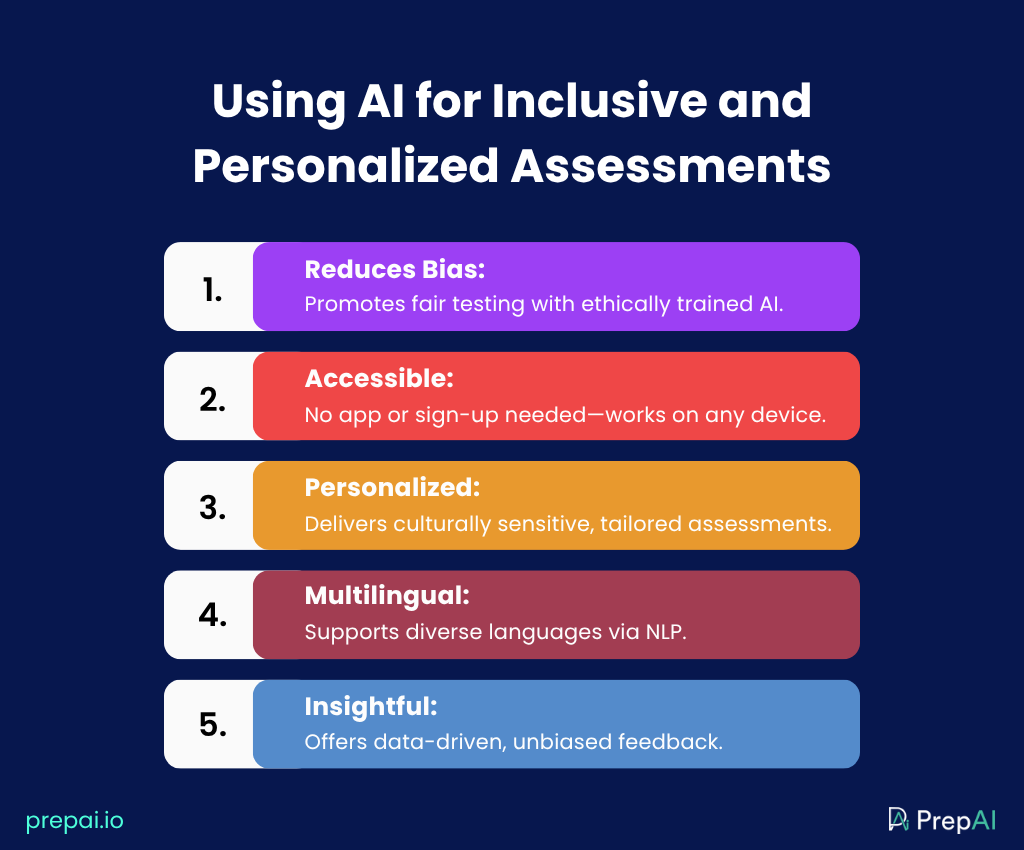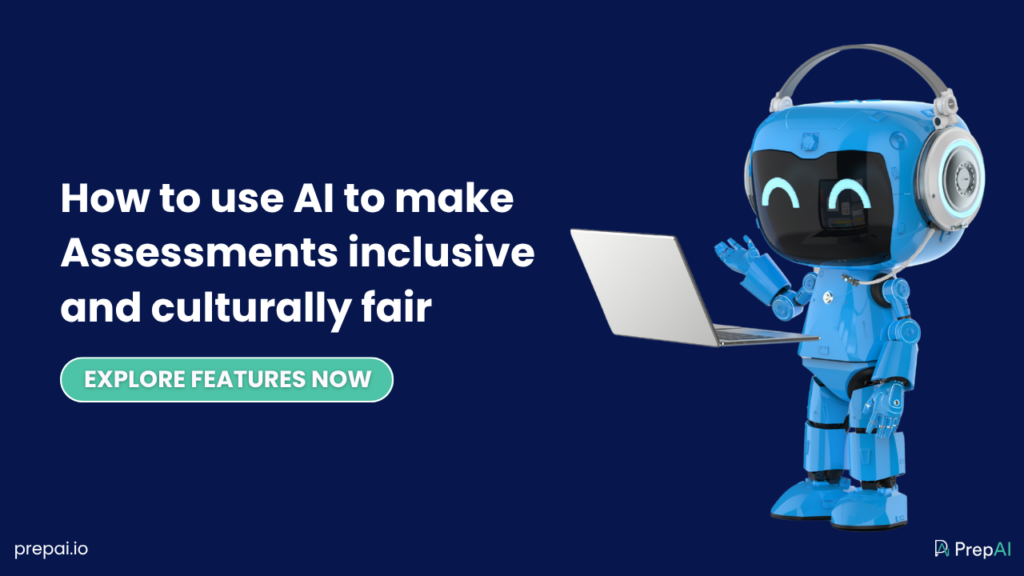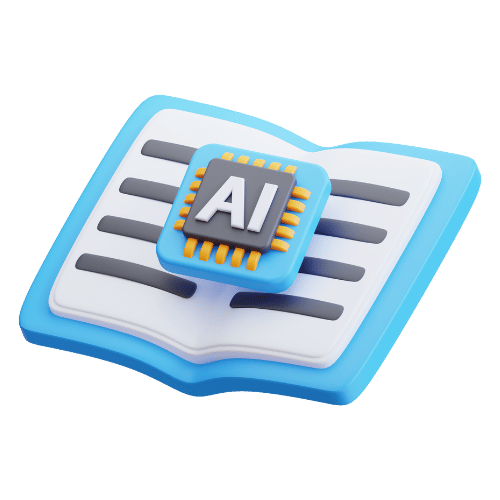It’s necessary to acknowledge diverse cultures across all industries in different processes like learning, development, and assessments. Here, we’ll discuss the importance of culturally inclusive assessments and the role of AI-powered inclusive testing across industries.
Globalization and immigration have brought many changes around the world. Yet, it wasn’t until recent years that the education industry began to adopt the changes. Today, a classroom has students from diverse backgrounds, cultures, and ethnicities. They have varying perspectives about things and different reactions to similar events. The same is applicable in several other industries where diverse people have to work together for a common goal.
Educators and HR teams are expected to understand the importance of cultural inclusivity and implement it across the establishment. Shouldn’t this extend to assessments, too? After all, assessments are integral to learning and development in any industry.
Fortunately, AI-powered inclusive testing tools like PrepAI make it easier to create culturally aligned assessments for varied requirements.
In this blog, we’ll read more about why it is necessary to create culturally inclusive assessments and how AI tools can simplify the process.
Why Culturally Inclusive Assessments Matter
For centuries, people from marginal communities and indigenous cultures have faced discrimination. They weren’t given the same opportunities as the dominant ones. Moreover, learning is highly cultural. People are shaped by the cultural values, social conditions, and community living. From a young age, kids learn from their elders by observing things and mimicking their actions. Our perspectives are shaped based on our cultural experiences. What is normal in one culture could be taboo in another.
By creating one-size-fits-all content, we would be negating the right of people from other cultures to have genuine experiences. Moreover, the same event can have a different impact on different people. For example, what the US calls the Vietnam War is termed as the American War (Resistance War against America) by the Vietnamese people. They saw a foreign country invade their land and kill their people.

Now, when a teacher conducts a history test and asks questions about this event, the responses would be different based on the students’ background and ethnicity. This is where culturally inclusive assessments add nuance to the process. Personalized assessments with AI test the participants without ignoring their cultural roots. This gives a more comprehensive insight into the participants.
Fairness and Equality
Culturally inclusive assessments are fair and minimize bias due to race, skin color, religion, etc., and create a level playing field where the test takers are evaluated based on their skills, knowledge, and abilities instead of preconceived notions about who they are or what they should be.
Greater Engagement
When we create competency-based assessments that are culturally inclusive, they encourage the participants to deliver their best and showcase their true potential. The tests will feel more relatable to each of them and keep them interested in submitting all answers to the best of their knowledge and abilities. This increases the participation rate.
Better Outcomes
When an assessment test is more relatable and aligned with a participant’s culture, it gives them the confidence to showcase their talents. Additionally, this allows the educators and HR teams to use the outcomes and insights to make data-driven decisions. For example, factors like demographics, socioeconomic constraints, ethnic representation, etc., show how the institutions can respectfully work with people from diverse cultures.
Cognitive Abilities
The cognitive abilities of a person may depend on their cultural identity. Some cultures encourage analytical thinking while some cultures give more importance to emotional abilities or empathy, and so on. However, believing the stereotypical statements can also be risky. For example, not every Asian is great at math. That’s why AI-powered inclusive testing helps in understanding the cognitive abilities of the participants without stereotyping them.
Better Cultural Representation
Cultural representation for the sake of it will not be of much use if people don’t understand other cultures or make a genuine attempt to learn more about them. Once again, it could lead to stereotypical representation that causes more harm than good. By creating culturally inclusive assessments, the establishment can create a positive environment for the participants to gain knowledge. Using AI for diverse learning environments makes this process more effective.
Appealing to a Wider Group of Participants
By using AI in multicultural classrooms to create culturally inclusive content and assessments, we can easily connect with a larger group of students from diverse backgrounds. Students will not feel alienated or left out and have better interpersonal relationships with each other, teachers, and the school management. This gives the institution a good reputation.
Using AI-powered Inclusive Testing for Personalized Assessments
Address Potential Data Bias
AI for equitable learning helps address potential bias about marginal communities and indigenous cultures from around the globe. At the same time, we should make a conscious effort to use high-quality data for training the AI tools to eliminate unseen bias. Ethical use of AI helps in creating inclusive and personalized assessments for various participant groups.
Accessible Assessments
Whether it is technical assessments, quizzes, or regular exams, the tests should be easily accessible to people from diverse groups and communities. AI tools simplify the process of creating and conducting assessments online. With tools like PrepAI, the participants don’t have to download apps or sign up anywhere. They just have to click on the given link from their smartphone, tablet, computer, or laptop and submit the answers. The AI assessment tools are compatible with most devices and can be accessed from location.
Personalizing Learning Experiences
Artificial intelligence is known for providing personalized experiences. While it has become a part of content creation to promote better learning and development, it should be used for competency based learning assessment and other tests to create culturally inclusive, sensitive, and relatable experiences for the participants across their learning journey. When the lessons and assessments are culturally rooted, they create better evaluation parameters and highlight the strengths and capabilities of the participants.
Multilingual Support
Another advantage of using AI for culturally inclusive tests is its ability to understand multiple languages. Even if the teachers or HR teams don’t understand different languages, they can create assessments for people from different cultures in their native languages by using AI assessment tools. Multilingual capabilities and contextual accuracy can be achieved through a powerful NLP (natural language processing) algorithm.
Discussing Data-Driven Feedback
The functional assessments created using AI-powered tools can not only be culturally inclusive but also provide data-driven feedback in the form of analytical insights. Teachers, educators, trainers, recruiters, and mentors can use these reports to make informed decisions, share personalized feedback, and discuss the capabilities of the candidates without giving in to prejudices and biases. It can also lead to greater transparency and accountability in the establishment.

To Sum Up
By creating culturally inclusive assessments using AI tools, educational institutions and businesses can create a holistic and positive atmosphere for people from different backgrounds and ethnic groups to come together and work collectively.
This creates a more accountable system, resulting in greater trust in institutions. It also provides more opportunities for people from oppressed cultures and helps them combat bias effectively. Culturally inclusive assessments should be combined with inclusive classrooms and workplaces, as well as awareness programs, to build a stronger society.



